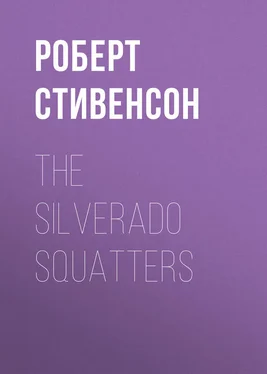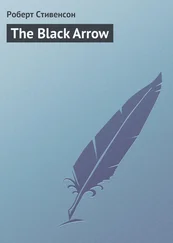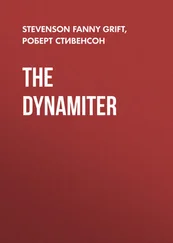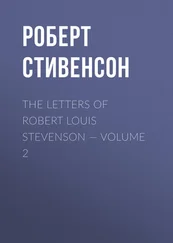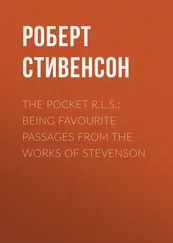Роберт Стивенсон - The Silverado Squatters
Здесь есть возможность читать онлайн «Роберт Стивенсон - The Silverado Squatters» — ознакомительный отрывок электронной книги совершенно бесплатно, а после прочтения отрывка купить полную версию. В некоторых случаях можно слушать аудио, скачать через торрент в формате fb2 и присутствует краткое содержание. Жанр: literature_19, foreign_antique, Путешествия и география, на английском языке. Описание произведения, (предисловие) а так же отзывы посетителей доступны на портале библиотеки ЛибКат.
- Название:The Silverado Squatters
- Автор:
- Жанр:
- Год:неизвестен
- ISBN:нет данных
- Рейтинг книги:5 / 5. Голосов: 1
-
Избранное:Добавить в избранное
- Отзывы:
-
Ваша оценка:
- 100
- 1
- 2
- 3
- 4
- 5
The Silverado Squatters: краткое содержание, описание и аннотация
Предлагаем к чтению аннотацию, описание, краткое содержание или предисловие (зависит от того, что написал сам автор книги «The Silverado Squatters»). Если вы не нашли необходимую информацию о книге — напишите в комментариях, мы постараемся отыскать её.
The Silverado Squatters — читать онлайн ознакомительный отрывок
Ниже представлен текст книги, разбитый по страницам. Система сохранения места последней прочитанной страницы, позволяет с удобством читать онлайн бесплатно книгу «The Silverado Squatters», без необходимости каждый раз заново искать на чём Вы остановились. Поставьте закладку, и сможете в любой момент перейти на страницу, на которой закончили чтение.
Интервал:
Закладка:
Our driver gave me a lecture by the way on Californian trees – a thing I was much in need of, having fallen among painters who know the name of nothing, and Mexicans who know the name of nothing in English. He taught me the madrona, the manzanita, the buck-eye, the maple; he showed me the crested mountain quail; he showed me where some young redwoods were already spiring heavenwards from the ruins of the old; for in this district all had already perished: redwoods and redskins, the two noblest indigenous living things, alike condemned.
At length, in a lonely dell, we came on a huge wooden gate with a sign upon it like an inn. “The Petrified Forest. Proprietor: C. Evans,” ran the legend. Within, on a knoll of sward, was the house of the proprietor, and another smaller house hard by to serve as a museum, where photographs and petrifactions were retailed. It was a pure little isle of touristry among these solitary hills.
The proprietor was a brave old white-faced Swede. He had wandered this way, Heaven knows how, and taken up his acres – I forget how many years ago – all alone, bent double with sciatica, and with six bits in his pocket and an axe upon his shoulder. Long, useless years of seafaring had thus discharged him at the end, penniless and sick. Without doubt he had tried his luck at the diggings, and got no good from that; without doubt he had loved the bottle, and lived the life of Jack ashore. But at the end of these adventures, here he came; and, the place hitting his fancy, down he sat to make a new life of it, far from crimps and the salt sea. And the very sight of his ranche had done him good. It was “the handsomest spot in the Californy mountains.” “Isn’t it handsome, now?” he said. Every penny he makes goes into that ranche to make it handsomer. Then the climate, with the sea-breeze every afternoon in the hottest summer weather, had gradually cured the sciatica; and his sister and niece were now domesticated with him for company – or, rather, the niece came only once in the two days, teaching music the meanwhile in the valley. And then, for a last piece of luck, “the handsomest spot in the Californy mountains” had produced a petrified forest, which Mr. Evans now shows at the modest figure of half a dollar a head, or two-thirds of his capital when he first came there with an axe and a sciatica.
This tardy favourite of fortune – hobbling a little, I think, as if in memory of the sciatica, but with not a trace that I can remember of the sea – thoroughly ruralized from head to foot, proceeded to escort us up the hill behind his house.
“Who first found the forest?” asked my wife.
“The first? I was that man,” said he. “I was cleaning up the pasture for my beasts, when I found this ” – kicking a great redwood seven feet in diameter, that lay there on its side, hollow heart, clinging lumps of bark, all changed into gray stone, with veins of quartz between what had been the layers of the wood.
“Were you surprised?”
“Surprised? No! What would I be surprised about? What did I know about petrifactions – following the sea? Petrifaction! There was no such word in my language! I knew about putrifaction, though! I thought it was a stone; so would you, if you was cleaning up pasture.”
And now he had a theory of his own, which I did not quite grasp, except that the trees had not “grewed” there. But he mentioned, with evident pride, that he differed from all the scientific people who had visited the spot; and he flung about such words as “tufa” and “scilica” with careless freedom.
When I mentioned I was from Scotland, “My old country,” he said; “my old country” – with a smiling look and a tone of real affection in his voice. I was mightily surprised, for he was obviously Scandinavian, and begged him to explain. It seemed he had learned his English and done nearly all his sailing in Scotch ships. “Out of Glasgow,” said he, “or Greenock; but that’s all the same – they all hail from Glasgow.” And he was so pleased with me for being a Scotsman, and his adopted compatriot, that he made me a present of a very beautiful piece of petrifaction – I believe the most beautiful and portable he had.
Here was a man, at least, who was a Swede, a Scot, and an American, acknowledging some kind allegiance to three lands. Mr. Wallace’s Scoto-Circassian will not fail to come before the reader. I have myself met and spoken with a Fifeshire German, whose combination of abominable accents struck me dumb. But, indeed, I think we all belong to many countries. And perhaps this habit of much travel, and the engendering of scattered friendships, may prepare the euthanasia of ancient nations.
And the forest itself? Well, on a tangled, briery hillside – for the pasture would bear a little further cleaning up, to my eyes – there lie scattered thickly various lengths of petrified trunk, such as the one already mentioned. It is very curious, of course, and ancient enough, if that were all. Doubtless, the heart of the geologist beats quicker at the sight; but, for my part, I was mightily unmoved. Sight-seeing is the art of disappointment.
“There’s nothing under heaven so blue,
That’s fairly worth the travelling to.”
But, fortunately, Heaven rewards us with many agreeable prospects and adventures by the way; and sometimes, when we go out to see a petrified forest, prepares a far more delightful curiosity, in the form of Mr. Evans, whom may all prosperity attend throughout a long and green old age.
CHAPTER III – NAPA WINE
I was interested in Californian wine. Indeed, I am interested in all wines, and have been all my life, from the raisin wine that a schoolfellow kept secreted in his play-box up to my last discovery, those notable Valtellines, that once shone upon the board of Cæsar.
Some of us, kind old Pagans, watch with dread the shadows falling on the age: how the unconquerable worm invades the sunny terraces of France, and Bordeaux is no more, and the Rhone a mere Arabia Petræa. Château Neuf is dead, and I have never tasted it; Hermitage – a hermitage indeed from all life’s sorrows – lies expiring by the river. And in the place of these imperial elixirs, beautiful to every sense, gem-hued, flower-scented, dream-compellers: – behold upon the quays at Cette the chemicals arrayed; behold the analyst at Marseilles, raising hands in obsecration, attesting god Lyoeus, and the vats staved in, and the dishonest wines poured forth among the sea. It is not Pan only; Bacchus, too, is dead.
If wine is to withdraw its most poetic countenance, the sun of the white dinner-cloth, a deity to be invoked by two or three, all fervent, hushing their talk, degusting tenderly, and storing reminiscences – for a bottle of good wine, like a good act, shines ever in the retrospect – if wine is to desert us, go thy ways, old Jack! Now we begin to have compunctions, and look back at the brave bottles squandered upon dinner-parties, where the guests drank grossly, discussing politics the while, and even the schoolboy “took his whack,” like liquorice water. And at the same time, we look timidly forward, with a spark of hope, to where the new lands, already weary of producing gold, begin to green with vineyards. A nice point in human history falls to be decided by Californian and Australian wines.
Wine in California is still in the experimental stage; and when you taste a vintage, grave economical questions are involved. The beginning of vine-planting is like the beginning of mining for the precious metals: the wine-grower also “Prospects.” One corner of land after another is tried with one kind of grape after another. This is a failure; that is better; a third best. So, bit by bit, they grope about for their Clos Vougeot and Lafite. Those lodes and pockets of earth, more precious than the precious ores, that yield inimitable fragrance and soft fire; those virtuous Bonanzas, where the soil has sublimated under sun and stars to something finer, and the wine is bottled poetry: these still lie undiscovered; chaparral conceals, thicket embowers them; the miner chips the rock and wanders farther, and the grizzly muses undisturbed. But there they bide their hour, awaiting their Columbus; and nature nurses and prepares them. The smack of Californian earth shall linger on the palate of your grandson.
Читать дальшеИнтервал:
Закладка:
Похожие книги на «The Silverado Squatters»
Представляем Вашему вниманию похожие книги на «The Silverado Squatters» списком для выбора. Мы отобрали схожую по названию и смыслу литературу в надежде предоставить читателям больше вариантов отыскать новые, интересные, ещё непрочитанные произведения.
Обсуждение, отзывы о книге «The Silverado Squatters» и просто собственные мнения читателей. Оставьте ваши комментарии, напишите, что Вы думаете о произведении, его смысле или главных героях. Укажите что конкретно понравилось, а что нет, и почему Вы так считаете.
